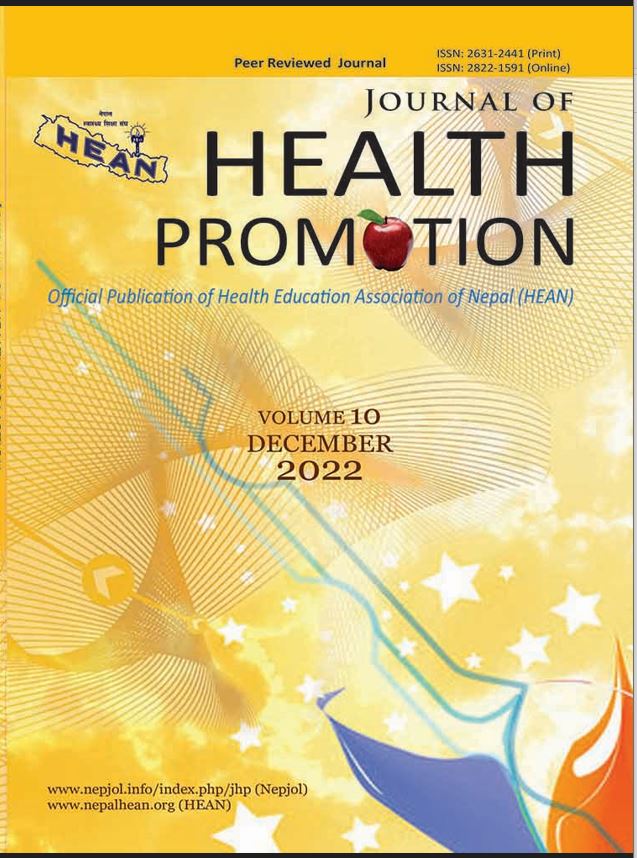Role of social media for sexual communication and sexual behaviors: A focus group study among young people in Nepal
DOI:
https://doi.org/10.3126/jhp.v10i1.50995Keywords:
adolescents, focus groups, health promotion, Nepal, relationship, sex education, social mediaAbstract
Over the past decade, young people’s use of the social media has increased steadily in many countries including Nepal. Studies in other countries suggest that social media platforms can play an important role in facilitating sexual communication and relationships. This qualitative study comprising focus group discussions (FGDs), intends to explore: (a) perceptions of and motives toward social media re. sexual communication in educated unmarried young people in Nepal; and (b) their views of the link between social media and risky sexual behavior. We carried out eight FGD, four with young men and four with young women. FDGs were audio recorded, transcribed and thematically analyzed. All FGD participants were students (age range 15-22) from Kathmandu. Five themes emerged from the thematic analysis: a) use of and motives for using social media; b) sex education in general; c) sexual information through social media; d) social media’s role in forming romantic and sexual relationships; and e) negative experience of social media. Social media are popular among young people in Nepal and is considered as an important platform to access sexual health information. Young people also use these to establish romantic and sexual relationships, however, it doesn’t necessarily mean that social media are directly leading to unsafe sexual behaviors in young people. It is the lack of awareness and inadequate education about sex that is resulting in unsafe sexual practices. Overall, suggesting the need for more appropriate health promotion activities in the field sex and relationship education.
Downloads
Downloads
Published
How to Cite
Issue
Section
License
Copyright (c) 2022 Health Education Network (HEAN)

This work is licensed under a Creative Commons Attribution-NonCommercial 4.0 International License.
© Health Education Association of Nepal (HEAN)
Authors are required to transfer their copyright to the Health Education Association of Nepal (HEAN).
The materials of this publication may be reproduced, reviewed and translated, acknowledging the source "Journal of Health Promotion".




